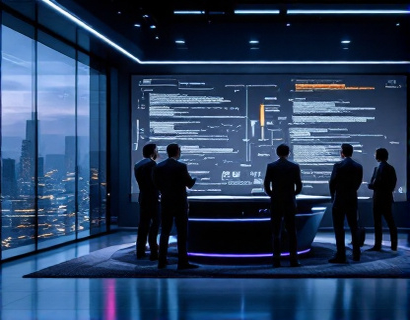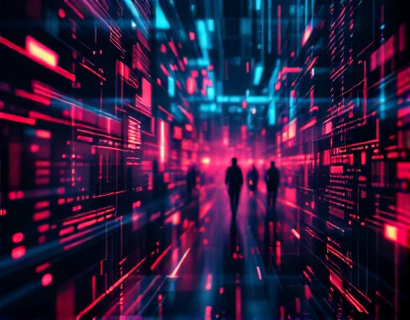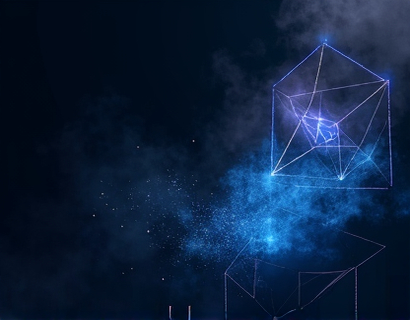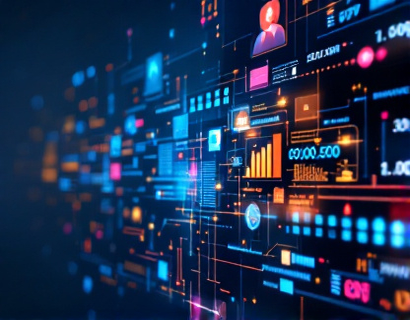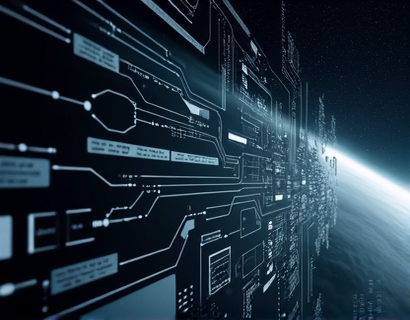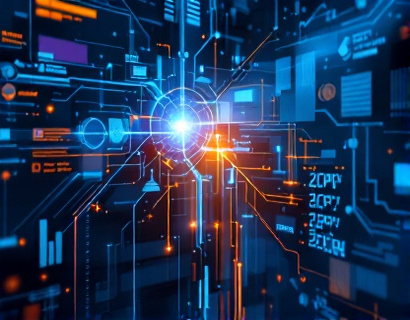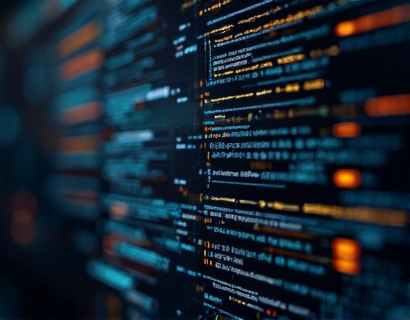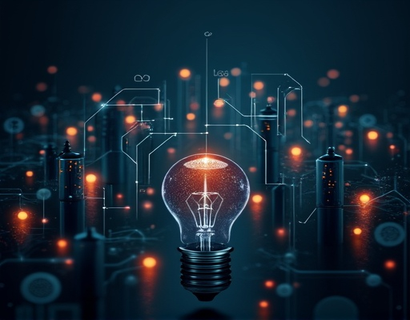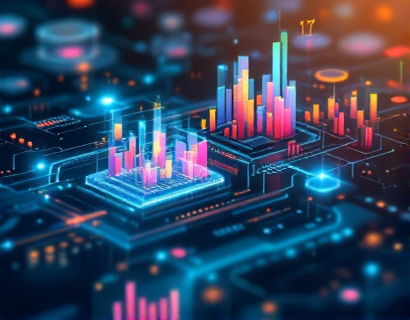Next-Gen Ucosystem Transformations: Harnessing Crypto and AI for Revolutionary Applications
The intersection of cryptocurrency and artificial intelligence (AI) is giving birth to a new era of technological advancements, redefining digital interactions and experiences. This transformation is not just about integrating two powerful technologies but about creating a synergy that unlock unprecedented possibilities. As we delve into this domain, it's essential to understand how these technologies are being harnessed to develop next-generation applications that are set to revolutionize various sectors, from finance and healthcare to entertainment and beyond.
The foundation of this revolution lies in the unique properties of blockchain technology, which underpins cryptocurrency. Blockchain's decentralized, transparent, and secure nature makes it an ideal platform for building trust and ensuring integrity in digital transactions. When combined with AI, which excels in processing vast amounts of data to uncover patterns and make predictions, the potential for innovation becomes immense. This article explores how these technologies are being leveraged to create applications that are not only efficient and secure but also intelligent and user-centric.
Decentralized Intelligence: The Core of Next-Gen Ucosystems
At the heart of this transformation is the concept of decentralized intelligence, where AI algorithms run on a decentralized network, leveraging the computational power of multiple nodes. This approach not only enhances the scalability and robustness of AI systems but also aligns with the core principles of blockchain technology. By distributing the processing power, decentralized AI can operate without a central authority, reducing the risk of single points of failure and enhancing privacy.
One of the key applications of decentralized AI is in the realm of predictive analytics. Imagine a system that can predict market trends, consumer behavior, or even potential security threats with high accuracy, all while maintaining the privacy and ownership of data. Such systems can be built on blockchain platforms, ensuring that the data used for training AI models is tamper-proof and transparent. This not only improves the reliability of AI predictions but also builds trust among users who are increasingly concerned about data privacy.
Smart Contracts and Automated Agreements
Smart contracts, self-executing contracts with the terms directly written into code, are another pivotal element in the next-gen ucosystem. When combined with AI, smart contracts can become even more powerful, enabling automated and intelligent agreements that adapt to changing conditions. For instance, in supply chain management, AI can predict delays or disruptions, and smart contracts can automatically adjust payment terms or reroute shipments without human intervention.
These automated agreements not only streamline processes but also reduce the need for intermediaries, lowering costs and increasing efficiency. The integration of AI in smart contracts allows for more complex logic and decision-making, making them suitable for a wide range of applications, from insurance claims processing to real estate transactions. The transparency and immutability of blockchain ensure that all parties have a clear and verifiable record of the agreement's execution.
Enhanced Security through Cryptographic Techniques
Security is a paramount concern in any digital ecosystem, and the combination of cryptocurrency and AI offers robust solutions. Cryptographic techniques, such as zero-knowledge proofs, enable parties to verify the authenticity of transactions without revealing sensitive information. This is particularly useful in scenarios where privacy is critical, such as in healthcare or financial services.
AI can further enhance security by detecting and mitigating threats in real-time. Machine learning algorithms can analyze patterns in network traffic or user behavior to identify anomalies that may indicate a security breach. By integrating AI-driven security measures with blockchain's inherent security features, the resulting system is not only highly secure but also adaptive to new threats.
Personalized User Experiences through AI-Driven Recommendations
One of the most exciting applications of AI in the next-gen ucosystem is the creation of personalized user experiences. By leveraging AI's ability to analyze vast amounts of data, platforms can offer tailored recommendations, content, and services that resonate with individual users. This is particularly relevant in areas like entertainment, where AI can curate personalized playlists, movie suggestions, or even virtual reality experiences.
In the context of e-commerce, AI-driven recommendation engines can suggest products based on a user's browsing history, purchase behavior, and preferences. This not only enhances the user experience but also increases conversion rates for businesses. The use of blockchain ensures that user data is securely stored and managed, giving users greater control over their personal information.
Tokenization of Assets and Services
Tokenization, the process of converting assets or rights into digital tokens on a blockchain, is another transformative application of the next-gen ucosystem. This technology allows for the fractional ownership of assets, making them more accessible to a broader audience. For example, real estate tokens can enable multiple investors to own a portion of a property, reducing the barriers to entry and increasing liquidity.
In the creative industry, artists and content creators can tokenize their work, allowing fans to purchase unique digital assets or support their favorite creators through token-based rewards. This not only provides a new revenue stream but also fosters a more direct and meaningful connection between creators and their audience. The use of AI in managing and verifying these tokens ensures transparency and efficiency in the transaction process.
Decentralized Finance (DeFi) and AI-Enhanced Trading
Decentralized finance (DeFi) is a rapidly growing sector that leverages blockchain and AI to create financial services without traditional intermediaries. AI-enhanced trading platforms can analyze market data, identify trends, and make informed trading decisions, all while operating on a decentralized network. This combination reduces the risk of manipulation and increases the efficiency of financial markets.
AI can also improve risk management in DeFi by predicting market volatility and suggesting hedging strategies. Smart contracts can automate these strategies, executing trades based on predefined conditions. The transparency of blockchain ensures that all transactions are visible and verifiable, building trust among users. This democratizes access to financial services, making them available to anyone with an internet connection.
Challenges and Considerations
While the potential of merging cryptocurrency and AI is vast, there are several challenges that need to be addressed. Regulatory uncertainty remains a significant hurdle, as governments worldwide are still grappling with how to regulate these emerging technologies. Ensuring compliance while fostering innovation is a delicate balance that requires collaboration between technologists, policymakers, and industry stakeholders.
Another challenge is the technical complexity involved in integrating blockchain and AI systems. Developing scalable and efficient solutions that can handle the demands of real-world applications requires expertise in both domains. Additionally, there is a need for standardization to ensure interoperability between different platforms and services.
Privacy concerns also play a crucial role. While blockchain offers transparency, it can also expose sensitive information if not properly managed. Implementing advanced cryptographic techniques and ensuring that AI algorithms respect user privacy are essential to building trust and adoption.
Future Outlook: The Path Forward
The future of the next-gen ucosystem is bright, with endless possibilities for innovation and growth. As technology continues to advance, we can expect to see more sophisticated applications that seamlessly integrate cryptocurrency and AI. The key to success lies in fostering a collaborative ecosystem where developers, researchers, and users work together to overcome challenges and drive progress.
Education and awareness are also critical. As these technologies become more mainstream, it's important to equip users with the knowledge to understand and leverage their potential. This includes not only technical skills but also an understanding of the underlying principles and ethical considerations.
In conclusion, the convergence of cryptocurrency and AI is not just a technological trend but a fundamental shift in how we interact with digital systems. By harnessing the power of decentralized intelligence, automated agreements, enhanced security, personalized experiences, tokenization, and DeFi, we can create a more efficient, secure, and inclusive digital world. The journey ahead is exciting, and those who embrace these transformative technologies will be at the forefront of shaping the future.




